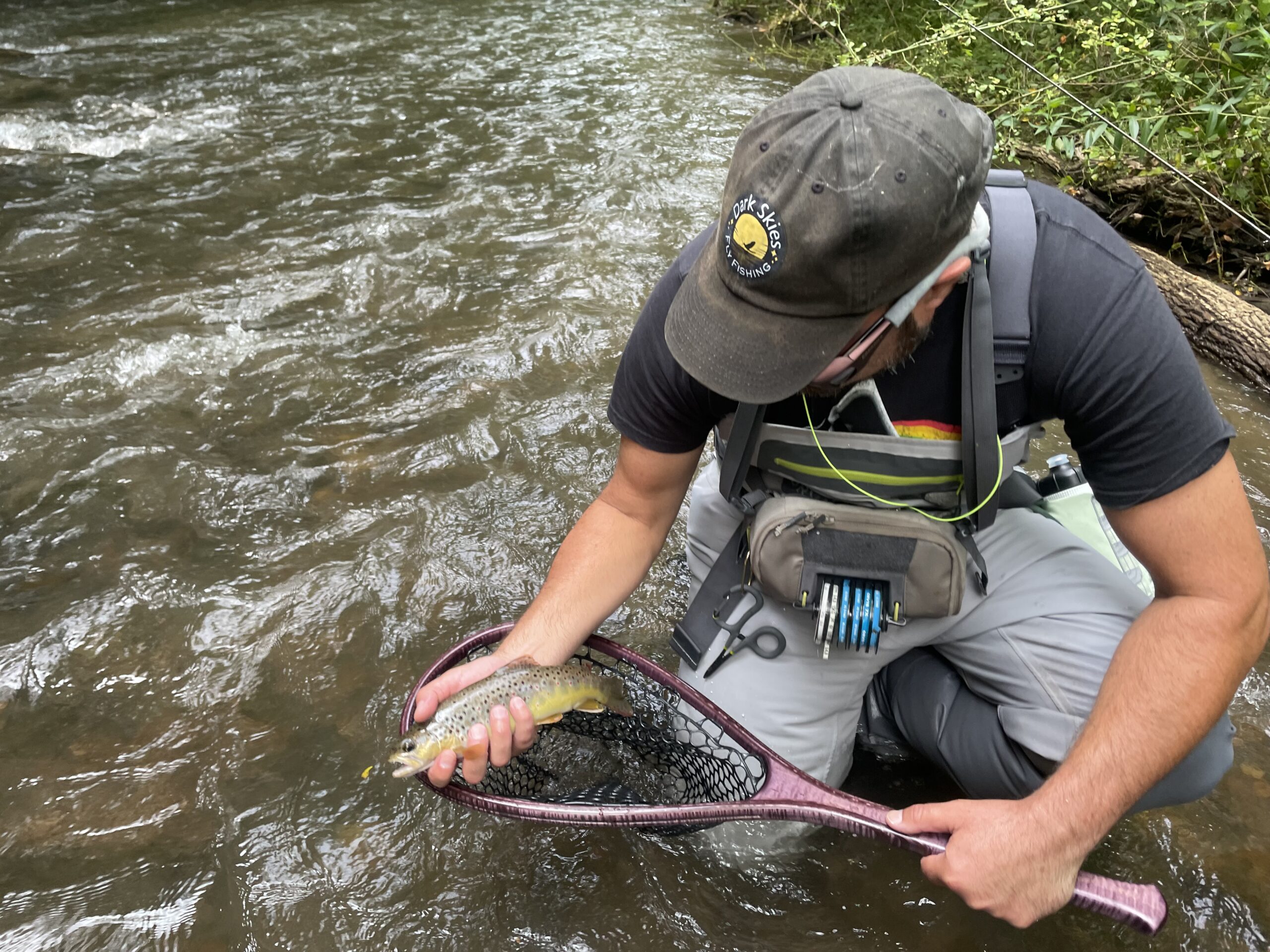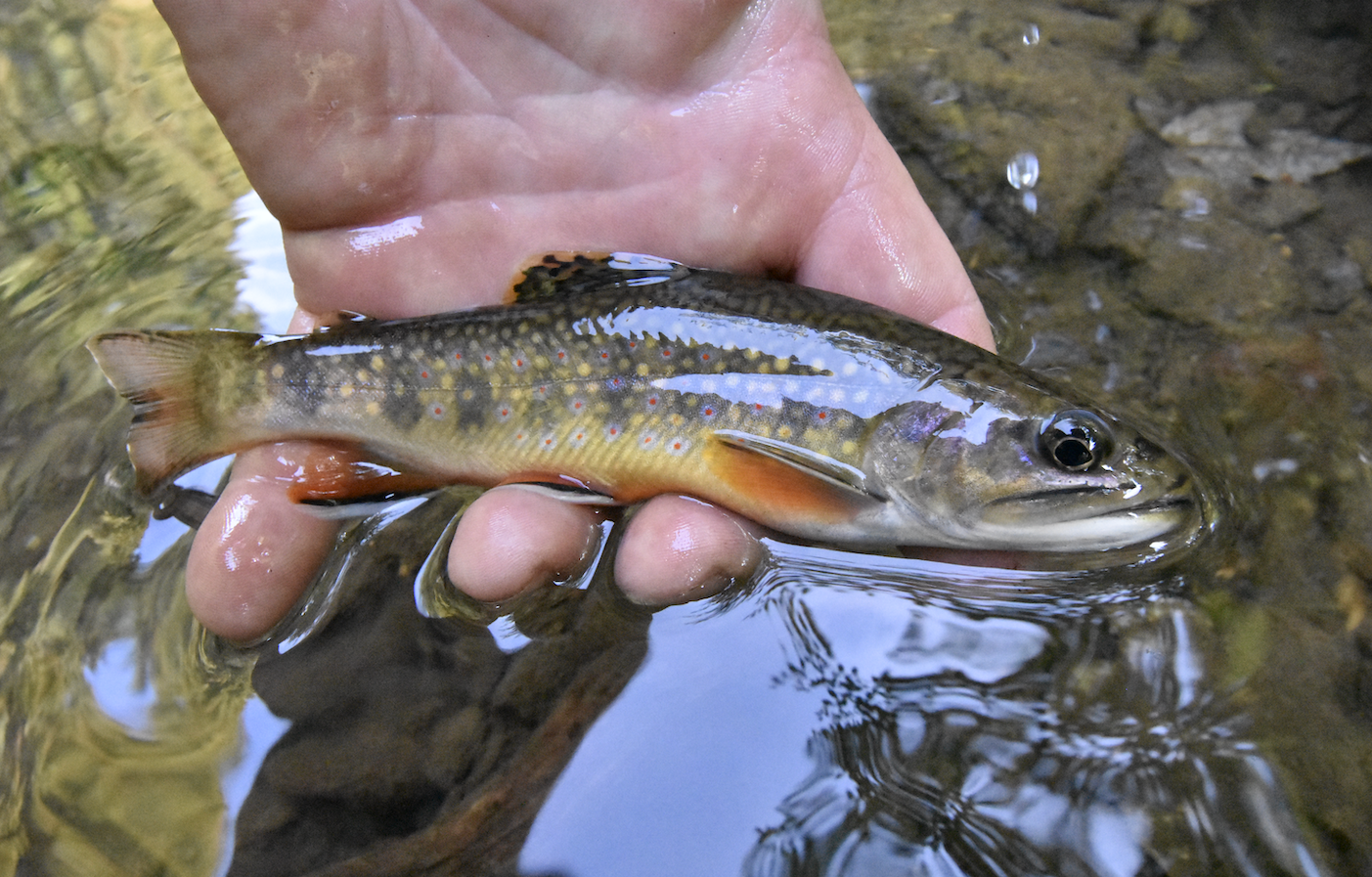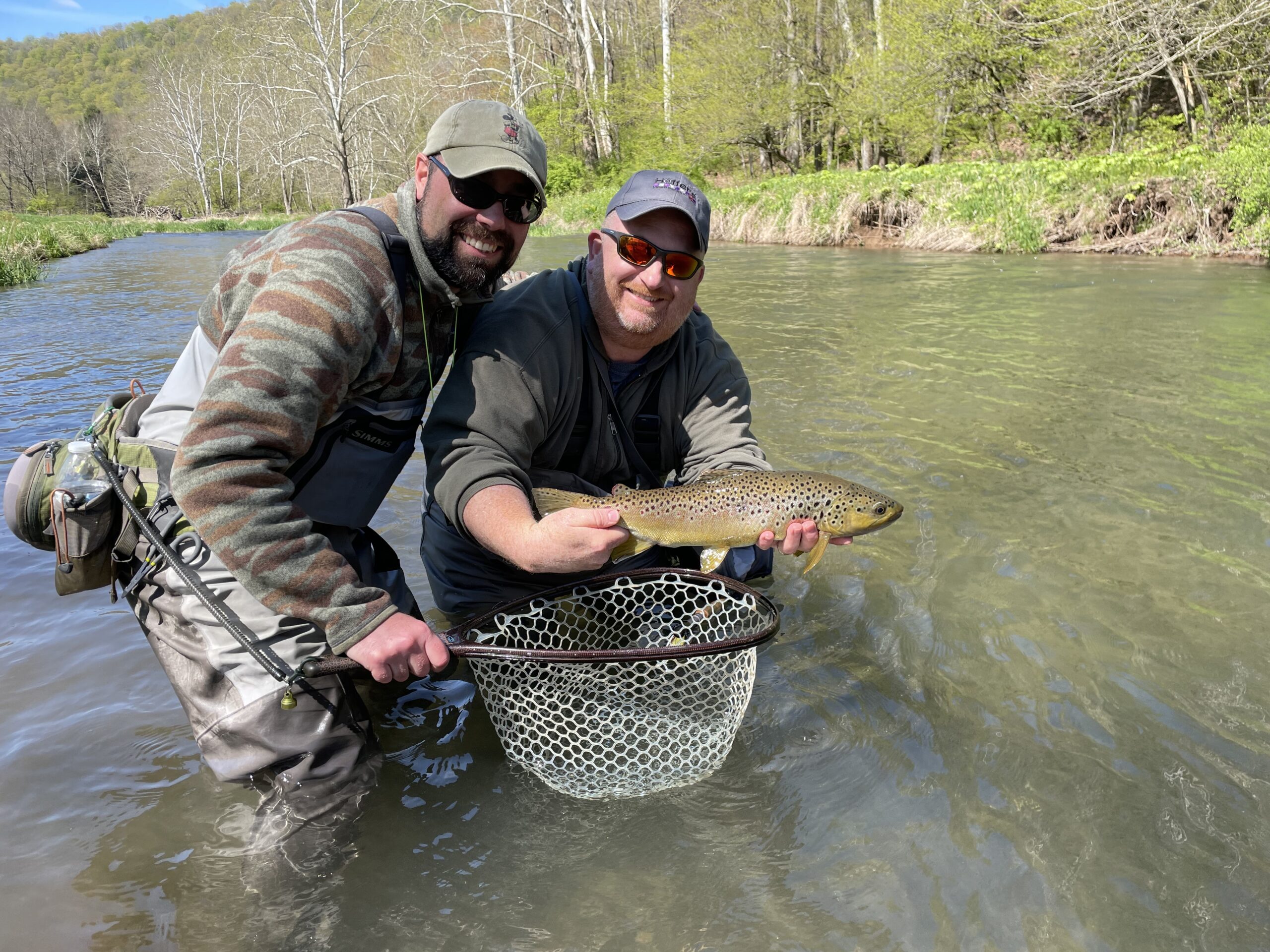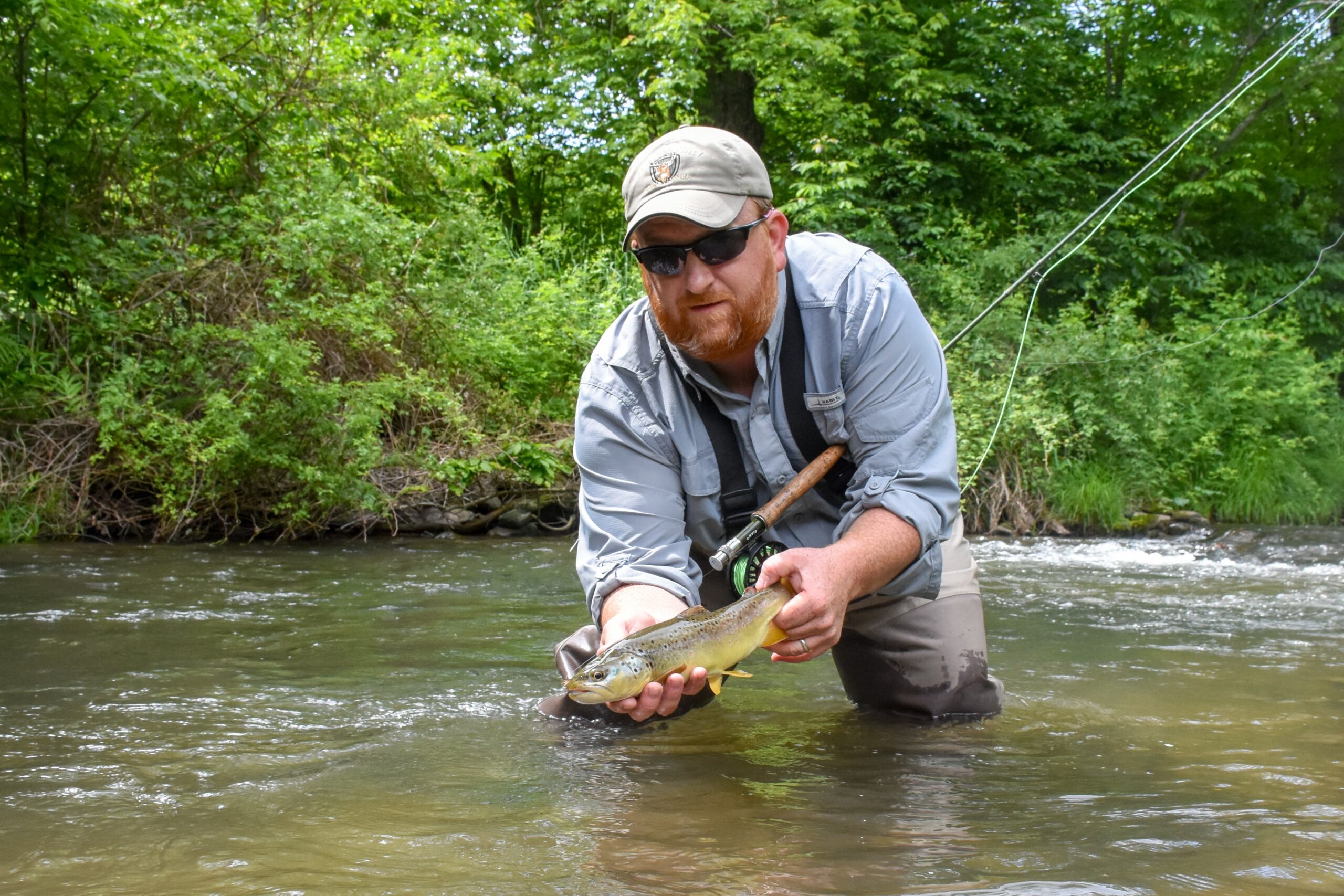By Ralph Scherder
Ask a hundred anglers why they fish and you’ll likely get a hundred different responses. Some might put emphasis on catching dinner while others are looking for a way to enjoy the outdoors with friends or by themselves. I’ve always been curious, though, why anglers, when asked why they fish, don’t unanimously state that it’s about the fish. After all, without the fish, there would be no fishing.
That’s an oversimplification, of course, but the point is undeniable, and within that context we realize the importance of the fish itself. If catching fish really didn’t matter, then why not just skip fishing and go for a simple walk around the lake or along a stream? Sure, for some people, a simple walk gives them exactly what they need from time spent outdoors. But for others, we will always wonder what we might catch if we cast a line out into those waters.
Does that mean that we must always catch something in order to have fun? Absolutely not! In fact, fishing just might be one of the few things you can fail miserably at and yet still enjoy. The ancillary benefits of time outdoors, spent with friends, and engaging in nature are equally as important, but catching fish takes those benefits to the next level. It provides a thrill, a sense of accomplishment, and in some cases, a meal for our families. There are other measurable benefits, too, such as supporting conservation efforts and local economies, teaching life lessons while enjoying nature, and providing a framework in which lasting memories can be made.
Conservation Efforts and Local Economies
Conservation is built on the idea that we have something valuable enough to conserve, in this case healthy aquatic ecosystems. One of the benefits of healthy ecosystems is healthier fish populations, and more fish means more opportunities to catch fish. And more opportunities equals more sales of fishing licenses, rods, reels, and other gear needed to catch those fish. A portion of the money earned from the sale of those items (called an excise tax, which can be 10% or more of gross sales) then gets redistributed back to state wildlife agencies and conservation groups to enhance conservation efforts. It’s a wonderful win-win chain of events.
If fishing wasn’t about the fish, then there’d be no need to for high quality tackle and certainly no need to travel anywhere to find better opportunities. As a result, billions of dollars in economic impact would be lost, and the effects of that loss would especially be felt in areas such as the Pennsylvania Wilds, which is home to only 4% of the state’s population but yet is home to some of the most beautiful fishing destinations in the northeastern United States.
Image: Money wouldn’t be spend on waders, tackle, and other gear if catching fish wasn’t so much fun. Photo by Ralph Scherder.
With an overall sparse population base to draw from, Pennsylvania Wilds businesses rely on outdoor activities such as fishing, hunting, and other events to bring tourists into the region. In fact, the Pennsylvania IMPACCT Commission has found that an economic impact of $37 was generated for every dollar spent on activities such as fishing, and in Pennsylvania alone, the American Sportfishing Association estimates that 1.6 million anglers spend over $500 million every year on fishing. That translates into a lot of money for local economies and a lot of money for conservation, and truly highlights why fishing truly is about the fish.
Life Lessons
In fishing, there’s a direct correlation between skill and results, and those results are often measurable by the number of fish you catch. That’s not saying that numbers matter or that the size of the fish matters, but both can be benchmarks for improvement, and any time we improve in a discipline, we feel a sense of accomplishment and happiness.
The skills learned through fishing are adaptable to life, too. It teaches us to be inquisitive, such as learning more about the behavior of fish and the environments in which they live, water types in which you’re more likely to find certain species, and then what those species prefer to eat. And it also teaches us to be creative to figure out how to present our fly, lure, or bait in a manner that will make the fish want to bite.
Most of all, fishing teaches us to be patient, a lesson that’s becoming more important as we move into an even faster-paced world of instant gratification. Fishing teaches us to slow down and think things through, what many anglers call “reading the water,” which basically means assessing the situation and figuring out what fly you need to use and where you need to cast it in order to catch a fish. Fishing teaches us that if we’re willing to be patient, put in the time, and learn more, then success will follow.
I have two young kids, a daughter named Sophia and a son named Jude, and I take them fishing as much as possible. Sure, they love spending time with dad, and I love spending time with them, but their level of excitement, enthusiasm, and feeling of accomplishment and pride goes up with every catch. For them, catching fish isn’t just one of the reasons why we go fishing; it’s the only reason! Otherwise, we’d just go to the playground.
Of course, that doesn’t mean we have to catch something every time we go or that it has to be easy. Instead, they know that catching a fish is their reward for doing many little things right, and when they don’t catch anything, it sparks a conversation that usually ends up with me teaching them something new so that they can improve their skills and do better next time. That interaction, and the bond we share in the pursuit of a goal, is another reason why the fish itself is so important.
Image: It’s about the fish, and along the way we learn about conservation and life. Photo by Ralph Scherder.
A Framework for Making Memories
As we get older, fishing becomes less about catching fish and more about spending time on the water with family and friends, making memories, and building relationships. Later in life, fishing then becomes an opportunity to relax and unplug from our technological society. However, this is a very hard concept to explain to kids whose worlds revolve around their electronic devices. In truth, kids and teenagers don’t go fishing because they want to unplug. Rather, the goal is to catch whatever species they’re after.
As a teenager, and even in my twenties, my friends and I were no different. Our goal was always to catch dinner or land the big one. Sometimes we succeeded, sometimes we failed, but the memories made were a byproduct of our desire – our goal was never to go out and make memories; our goal was to catch fish.
Still, even if we were unsuccessful, that didn’t mean the trip was a failure. We tried our best, we learned new things, and more importantly, we spent time together doing something we loved. Certain friends and I still find joy in talking about past follies and experiences shared on the water more than 30 years ago.
Therein lies the beauty of fishing – and life, I suppose. Often, while pursuing these finned creatures or life goals, other things happen that create lasting impressions and lifetime memories. I’m thinking now of the countless times I’ve encountered old guys along the trout stream who sat on their upside down five gallon buckets, tossed a line out, and began telling me their tales of glory of big fish caught many years ago. I’ve always enjoyed hearing their stories, and I find myself becoming more and more like those guys, striking up conversations with strangers as we wait for the fish to start biting.
Image: The smiles say it all, two friends celebrating an awesome catch. Photo by Ralph Scherder.
Only once we’ve matured as anglers, though, does fishing become less about the fish and more about the time spent outdoors. It’s a natural progression, the result of a lifetime of piscatorial pursuits. I’d even argue that the only way we can really enjoy fishing and not catching anything when we’re older is because we can reflect back on those times when we were successful and have hope that something magical might happen again.
This is also why it’s difficult to explain conservation to a young angler. Only after the thrill of learning a new craft, improving skills, and gaining an appreciation for nature can we then realize the importance of leaving a place better than we found it. That’s called wisdom, and it’s only gained through experience, otherwise it’s just a word.
All of these reasons are why I love fishing, and why, for me, it will always be about the fish. When I bring a native brook trout to hand, admire its perfect wild beauty, for a brief moment I am connected to it, and long after releasing that fish back into its shadowy haunts, I am driven to protect it and the waters in which it lives. And the lessons learned and memories made along the way are glorious byproducts of the process.
Yes, fishing is always about the fish.
About the author, Ralph Scherder:
Ralph Scherder is an award-winning writer and photographer whose work regularly appears in American Fly Fishing, Bowhunting.com, Fur-Fish-Game, Pennsylvania Angler & Boater, Pennsylvania Outdoor News, and many others. He lives in Coudersport with his wife Natalie, two kids Sophia and Jude, and two dogs Trapper and Huckleberry Finn. Read more of his work on his blog, www.DarkSkiesFlyFishing.com.
Related Articles
Mark these 2025 PA Great Outdoors photo contests on your calendar
Read MoreHow to get kids started with fishing
Read MoreNew sculpture made of recycled bicycles makes a splash along rail trail in Kane
Read More





